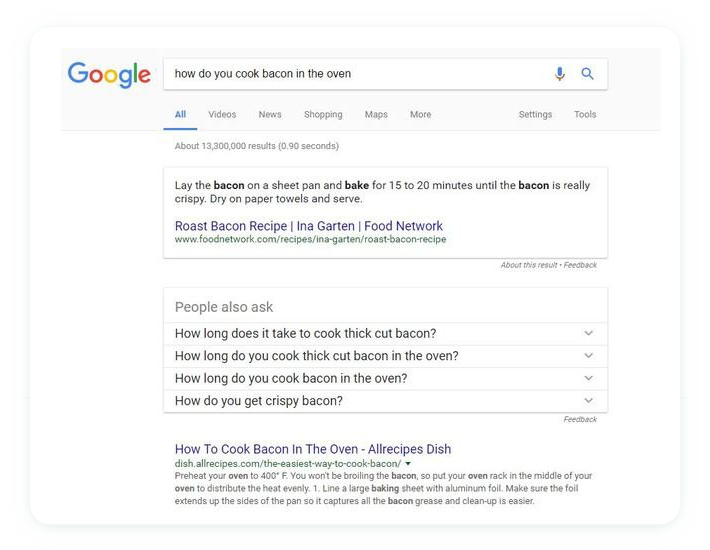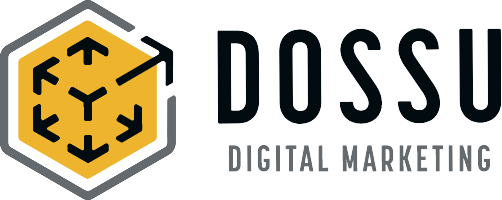
How to Target Prospects Who Need Your Services Right Now
You have a great company, you have all the expertise a person can possibly attain in your industry, and you offer excellent service.
Now for the age-old question:
How do you find clients who need your help?
This is something that every business owner struggles with, and this is a question that our agency has been tackling for clients since the very beginning.
And, because we’ve been handling this problem for so long...
We know exactly how to solve it.
We’ve decided to explain the most important steps in this free guide to help you deploy the most efficient marketing strategies for your business and close more sales.
Why?
Because we love helping local businesses reach their full potential. It’s why we started our agency in the first place.
If you keep reading, we’ll show you how to…
Identify where your prospective customers are looking for your products and services.
Deploy specific digital marketing tools to get in front of them.
Persuade them to pick you.
Part 1 – Profiling Your Audience
Before you are able to target prospects who need your help right now, it is helpful to understand the two different groups who will engage with your brand online: passive prospects and active searchers.
Active Searchers
Active searchers are people on the internet who are currently in need of your exact services.
Imagine you own a dental practice in Baltimore. If I just moved into town and am due for a cleaning, I might have an awareness in the back of my mind about finding a new dentist.
If I stumble upon an ad for your practice while browsing the Internet, this might activate my need for a dentist, and you might convert me, a passive prospect, into a customer. Got it?
BUT...
If I fall and chip my tooth, I would likely use Google to research “emergency dental appointment in Baltimore.” If your dental practice appears when I search these terms, and I choose you over your competitors, then you have succeeded in targeting an active searcher.
Make sense?
Because this guide is all about targeting prospects who need your services right now, we will focus on active searchers.
These are the people who woke up this morning needing your services or products and are looking for someone like you, right now in places like Google search.
The best way to profile active searchers is to identify the keywords they use when they need your services.
Keywords are words and phrases that are used as search queries.
To find keywords associated with your brand and industry, you can use an online research tool such as Google Keyword Planner.
You can also experiment by typing phrases into your search engine bar, and observing the associated searches or “People Also Ask” section in Google.

Here are some questions to help you create a thorough list of keywords:
- What problem does my business solve?
- What are some situations that drive people to purchase my services?
- If I weren’t an expert in my industry, which words might I use to describe my business?
- If I were in one of the above situations, how would I phrase my search?
- How does my business’s location in Baltimore (or your city) make it different from other businesses in my industry?
- Does my location directly affect the kind of demographic that is drawn to my business?

Part 2 – Assessing Your Digital Presence
Now that we’ve compiled a list of keywords that local active searchers will use when they need your help, let’s see how your company currently appears to them during the online search experience.
Go to Google, and type in one of your keyword phrases. Does your website appear in the results? If so…
- On which page do you appear in the search results?
- Who appears ahead of your company?
- If you were an active searcher, who would you choose to do business with?
- Why?
Repeat this process for at least 5 different keyword phrases in your list.
Please note that the search results you see aren't always what another searcher sees. Search results are dependent upon a wide variety of factors — including geographic location.
If you want a true picture of how your business appears in all parts of town, we have a special tool for retrieving this information.
Schedule a free consultation with our team, and we’ll use this tool to show you how your business looks to consumers all over town.
Part 3 – Two Strategies to Dominate Your Local Scene
We just found out how your company currently appears to active searchers online…so now, let’s dive into some strategies that will help boost your online presence & dominate your local scene.
There are two ways to get in front of active searchers, and they are:
The organic route, or the paid route.
The Organic Route
In the organic route, you use the power of search engine optimization (SEO) to increase your chances of appearing in search results associated with different keywords. You can optimize both the design of your website and the content of your website.
The Paid Route
In the paid route, you use the power of payper- click (PPC) advertising to appear in search results associated with different keywords. One of the most common PPC tools is Google Ads.
With PPC advertising, you can create an ad campaign and get right in front of people who need your services today.
Which method should I start with?
Ideally, you should use a combination of organic and paid strategies to increase your brand’s visibility online.
SEO is a worthwhile investment because it brings your website free traffic from Google, but it takes time to implement and maintain. This route requires more work, and it’s overall a more technical, demanding process.
PPC, on the other hand, is more “turn key.” With this route, you can activate an ad campaign in a matter of hours and see results right away.
For these reasons, we recommend beginning with PPC.
To implement a PPC ad campaign through Google, you simply...
- Create an Ads account
- Write a text-based ad for your business
- Enter the keywords for when your ad should appear
- Set an amount you are willing to pay for every time a searcher clicks on your ad.
We will go over each of these steps in more detail in the next section.
Part 4 – Laser Targeting Prospects with Pay-Per-Click Ads
Pay-per-click is the fastest strategy for getting your brand in front of active searchers, and Google Ads is the most popular and effective PPC platform. In this final section, we’ll walk you through the basic steps of creating a Google Ads campaign.
So, how does pay-per-click work?
Pay-per-click operates with a bidding system — similar to an auction.
When an active searcher enters a query into Google, Google then uses an algorithm to see whether or not the query is associated with any keywords. For example, if I’m in Baltimore and type “walk-in dental appointment” into my search bar, Google can associate this query with all kinds of keyword clusters, such as “dental care Baltimore” or “Baltimore dentist.”
The query doesn’t specifically use the words “Baltimore” or “dentist,” but based on the phrasing of the original search and the geographical location of the searcher, Google may include this data in the process of matching keywords.
Google will then scan its database of Google Ads accounts to check if there are any active ad campaigns associated with one of the keyword phrases — let's use “Baltimore dentist.” If there are multiple campaigns associated with this phrase, this is where the bidding starts.
In order to be in Google’s list of active ad campaigns, each Google Ads user has placed a bid on the keyword phrase “Baltimore dentist.” This bid reflects the amount of money a user is willing to pay each time a searcher clicks on their ad.
Now, you might be thinking, “Okay, so Google just displays the ad of the highest bidder, right?”
...Not exactly.
Google is interested in making money from ads, but they are also interested in providing a quality service for searchers.
Therefore, Google decides which ads to display by using a formula that considers both the maximum bid per click and a Google-assigned quality score. This score is calculated based on a variety of factors including ad quality and relevance.
After Google vets each active campaign against this formula, they select three ads to display at the top of the searcher’s “walk-in dental appointment today” results.
If the searcher clicks on one of these ads, then the creator of the ad will pay Google based on a formula that considers the surrounding bids and Google’s assigned quality score.
Typically, the ad creator pays less than their maximum bid.
In summary, to succeed with a pay-per-click campaign you need to...
Identify the most relevant keywords for your business.
Strategize and set your keyword cost-per-click bid.
Create quality contentfor your ad.
By carefully considering these three main components of pay-per-click marketing, you can optimize your ad budget and yield a high return on investment.
The Art of Writing PPC Ads
A good ad is the central ingredient to a successful campaign.
Each line of the ad has a limited character count, and successful ads tend to:
- Contain at least one relevant keyword phrase.
- Broadcast the unique value of your brand, service, product, or promotion.
- Include a compelling call to action.
When writing an ad for your company, consider these questions:
- Am I promoting my business, or am I promoting a specific product or service within my business?
- Based on the keywords associated with this ad, who is my audience?
- What is the most compelling aspect of what I offer?
- Why am I a better choice than my competitors?
If you’re just starting out with pay-per-click marketing, it may be a good idea to run a couple different ad campaigns that are associated with different keywords and contain different ad text.
By testing various combinations of keywords and copywriting, you can better understand how to target your message and grab the attention of your active searchers.
If you’re looking for a marketing strategy that will yield quick results for your business, then pay-per-click marketing is for you. And remember that while PPC helps with short-term growth, it can also be honed as a long term strategy wherein you optimize your ad budget and achieve an even stronger ROI. We're here to help — just fill out the contact form below!
Ready to make your business the one everyone talks about?
Let DOSSU Digital Marketing help you become the leader in your local market.
By submitting, you agree to receive text messages at the provided number from DOSSU Digital Marketing. Message frequency varies, and standard message and data rates may apply. You have the right to OPT-OUT receiving messages at any time. To OPT-OUT, reply "STOP" to any text message you receive from us. Reply HELP for assistance
